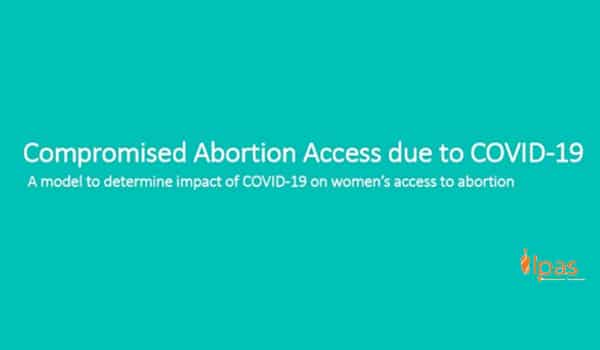
Ipas Development Foundation India undertook a modeling exercise to assess the short-term impact of COVID-19 on access to abortion services in India. The primary objective of the exercise was to estimate the extent to which access to abortion was compromised in the period since lockdown began on 25 March to 3 May, compared to 4-17 May and 18-31 May and the recovery period 1-24 June. They estimated that in usual times, 3.9 million abortions would have taken place, but that access to as many as 1.85 million abortions (47%) was compromised during this period. They argued that this places increased responsibilities on the health system to undertake a recovery plan to ensure remedial options for the affected women – both during and after the Covid-19 recovery period. This report will be used as an advocacy document to galvanise all stakeholders.
The reasons for these restrictions :
- the re-purposing of public health facilities as Covid-19 treatment centres;
- redeployment of facility staff from regular duties to Covid-19 care;
- closure of private health facilities due to provider unavailability and lack of protective gear;
- suspension of transport facilities, restricting mobility of women to access facilities or chemist outlets; and
- disruption in the supply chain of MA drugs at both chemist outlets and facilities.
The model quantified the reduction in abortion access across three facility types in both public and private sectors:
- Public health facilities– primary health centres (PHCs), community health centres (CHCs), and medical colleges and hospitals, district hospitals and sub-district or other urban hospitals
- Private health facilities– Clinics, nursing and maternity homes, and hospitals
- Medical abortions (MA) outside health facilities.
59% of the total abortions that were unlikely to take place (nearly one million) were during the first 40 days of the lockdown period, when the whole country was under the strictest conditions. This percentage was expected to decrease to 33% in the recovery period – indicating improvement in abortion access with successive time periods due to relaxations in government guidelines.
They estimated that 80% of inaccessible abortions could be attributed to the higher impact on MA pill sales at chemist outlets compared to other points of care. The remaining 20% could be attributed to facility-based abortions: 16% from private health facilities (nursing homes, private hospitals and private clinics) and 4% from public health facilities. These mostly small-sized facilities would have had a lack of preparedness and resources for Covid-19, particularly unavailability of protection gear for providers, mandatory Covid-19 testing arrangements and other patient care arrangements at the facility. In addition, transportation of support staff, unavailability of essential drugs and commodities, and risk aversion would be other key factors.
Due to stigma attached to abortions, women or their partners tend to avoid their neighbourhood chemist shops for MA pills and go to a more distant or less frequented outlet to buy them. With restrictions in transport, their ability to access the outlet of choice would be impacted.
They expected the compromised access to result in five possible scenarios:
- Women are able to access abortion, albeit a little delayed, but from their preferred point of care;
- Women are able to access abortion, but not as per their initial preference. While MA outside the facility is the preferred method for the majority of women, delayed access may result in exceeding the permissible limit of nine weeks and they may have no choice other than a facility-based surgical abortion.
- More women would require second trimester abortions.
- Some would have to continue their unintended pregnancy.
- Some would resort to unsafe abortions.
Their key recommendations:
- Rapid mapping of facilities (public and private) to identify geographic distribution of those offering first or second trimester abortion.
- Assessing public and private facility preparedness and strengthening services, especially for second trimester abortions.
- Informing women and their partners about availability of services.
- Strengthening referral linkages to enable women seeking abortion to access safe, legal services.
- Streamlining the supply chain and ensuring availability of MA pills and contraceptives.
- Including mechanisms to offset additional travel and out-of-pocket expenditure.
FULL REPORT: Compromised Abortion Access due to Covid-19, by Ipas Development Foundation, India, 28 May 2020



